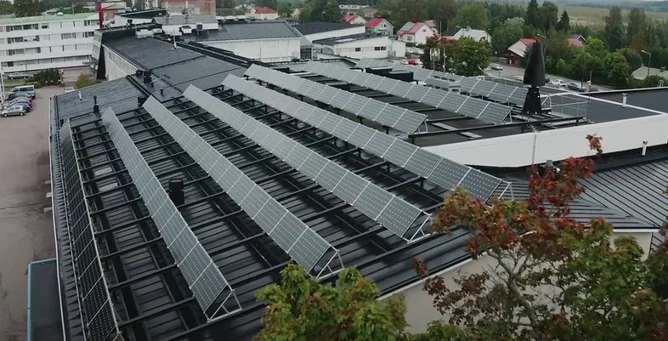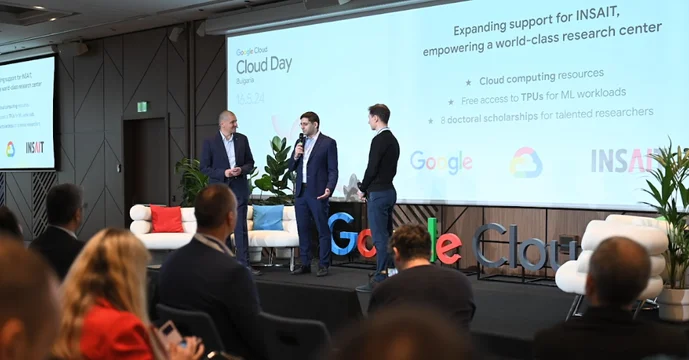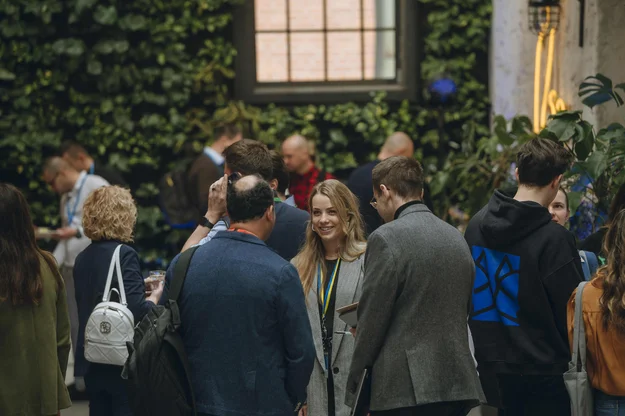Strengthening democracy in Europe

This week, I went to the Copenhagen Democracy Summit to recommit Google’s support to the cause of strengthening democracy. It was only two years since our last trip to the Summit, during a moment of uncertainty and crisis in Europe. This year, it was clear from the discussions that the stakes are even higher.
Today, state-sponsored threat groups are attacking government institutions across Europe, exploiting vulnerable systems. And concerns are mounting about the potential misuse of technology to create more convincing disinformation campaigns and phishing attacks on the doorstep of June’s EU elections.
The moment demands a more effective partnership between public, private and civic organizations, between technology and democracy, and better tools in democracy’s defense.
Technology’s responsibility
For many in Europe, technology companies have an obvious responsibility to support democracy. We hear this every day in conversation with leaders in government, academia and civil society. Others might ask what makes Google, a private company, so interested in protecting Europe’s democratic institutions.
The answer is this: democracy and civic dialogue have always sustained cooperation and innovation. As we said in 2022, democracy creates the conditions, such as openness and pluralism, for scientific inquiry to flourish, and technologists have a responsibility in return to protect those ideals.
Second, for many thousands of Googlers, Europe is home. We don’t take for granted what many decades of peace and democracy have meant for the safety and prosperity of our local communities.
An investment in European democracy
Given the importance of this issue, I was proud this week to announce the new €15M Google.org Impact Challenge: Strengthening Democracy in Europe — a fund that will help civil society groups and social innovators in Europe to scale initiatives promoting democratic resilience, including through the use of advanced technology and AI.
We’re making this commitment in the middle of a “super election year”, with EU parliamentary elections across 27 member states in June and a number of national elections later in the year. But like our other efforts to support election integrity, this new €15M commitment is not about any one election cycle. It’s also not about campaign politics; as we said in 2022, we leave “politics to the politicians.” It’s about unlocking solutions to the most pressing problems.
And it’s not only about 2024; it’s for the long term. Supporting civil society and drawing from the experience and ideas of government leaders is core to how we’ll help support making technology work for democracy for many years to come.
Supporting European elections
We’ll continue to support the EU elections in two main ways: Firstly, through our products and policies — by surfacing high-quality information to voters, safeguarding our platforms from abuse and equipping campaigns with best-in-class security tools and training.
And secondly, by supporting civil society organizations. When it opens for applications later this year, our new €15M Google.org Impact Challenge will set out to support the scaling of high-impact initiatives and solutions to strengthen democracy, including those that harness AI.
Supporting European organizations
A particular focus will be on areas such as protecting election integrity — for example, supporting cybersecurity for critical infrastructure and building the cyber capacity of nonprofit organizations who are working on elections and in support of democracy, who may be at risk from bad actors.
We’ll also focus on supporting organizations who are promoting civic engagement, education and dialogue ahead of national elections across Europe in 2025 and 2026 — for example, by making election information more accessible.
Among the organizations that Google.org has already supported to do this work are:
- ThinkYoung, a Belgian think tank that is running a series of youth-led hackathons across Europe, where young people of voting age will develop innovative solutions to election-related challenges such as barriers to democratic participation.
- Full Fact, a UK-based fact checking organization that a team of Google.org Fellows assisted in developing an AI tool that helps boost the number of claims that can be checked by over 1000 times, helping fact checkers globally.
- Bodyguard.ai, a French startup that has developed anti-cyberbullying technology, helping contribute to more healthy online civic spaces.
We will share more information about the Challenge in the coming months. Organizations can register their interest at g.co/ImpactChallenge/DemocracyEurope.







